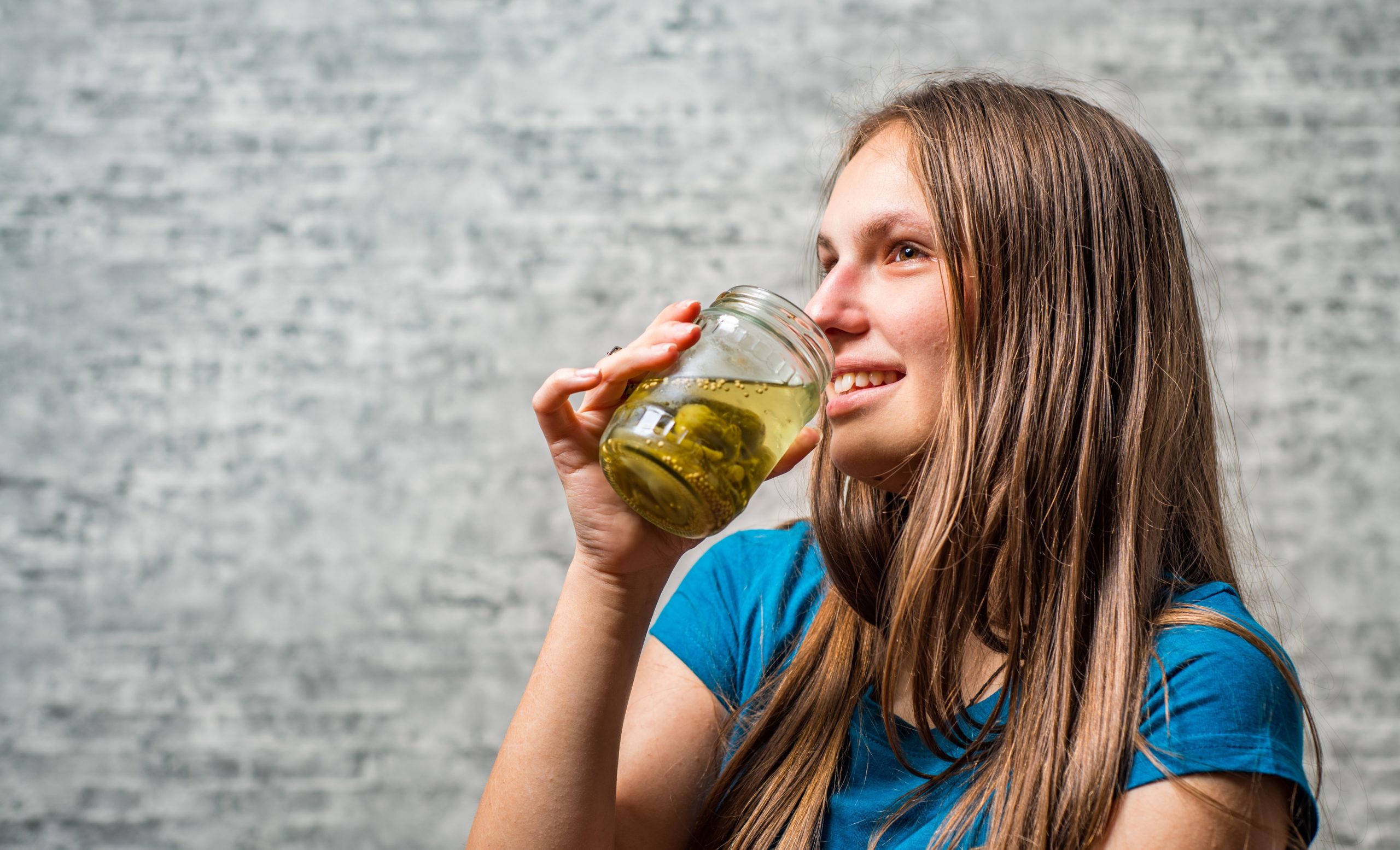
Is pickle juice good for you?
Pickles are beloved worldwide.
But some diehard pickle fans love more than just those crunchy, salty and sweet little cucumbers. They also love pickle juice – the brine in which pickles are made and packaged.
Many folks swear the juice has various health benefits. But is that true? Is pickle juice good for you, or is it bad for you?
The downside of pickle juice
Pickle juice is not fattening. In fact, it’s fat free and contains little to no calories – depending on the brand. But that doesn’t make it a healthy choice. In fact, it has a significant downside: sodium.
Pickles are either made in a brine of saltwater or vinegar. They also contain various seasonings, including salt – a lot of salt.
“A quarter cup of pickle juice may contain between 500 and 1,000 milligrams of sodium,” said Ashley Simper, a registered dietitian at OSF HealthCare. “The recommended daily limit of sodium for adults is 2,300 mg, so it’s easy to see how you could reach that daily allowance very quickly.
“This high sodium content is an even bigger problem for people with kidney disease, heart disease and high blood pressure. People with these conditions need to strictly limit their daily salt intake, which can make drinking pickle juice a bad choice.”
Are there pickle juice benefits?
Want more health and wellness info?
Let’s examine how well the following pickle juice health claims hold up to scrutiny.
Probiotics
Probiotics are live bacteria that are beneficial for keeping your digestive system, brain and immune system healthy. They can be found in pickle juice that’s made from saltwater brine. The saltwater ferments, which results in the growth of probiotics.
But there’s a problem. Most commercially produced pickles are made with vinegar brine instead of saltwater, so they don’t contain probiotics.
“But I don’t recommend drinking pickle juice for the probiotics anyway,” Ashley said. “Instead, there are healthier options that are much lower in sodium.”
These options include foods like:
- Yogurt
- Kefir (a fermented milk drink)
- Tempeh (a fermented soybean food)
- Kombucha (a fermented black or green tea drink)
Dehydration
Some people use pickle juice like a sports drink to rehydrate by replenishing fluids and electrolytes – specifically sodium and potassium – that are lost when sweating.
But is pickle juice good for dehydration?
Even though it contains electrolytes, there are more balanced alternatives.
“There are low-calorie and calorie-free sports drinks that are formulated to provide the right ratios of sodium and potassium,” said Ashley. “I would encourage athletes and those who exercise at least 60 minutes a day to work with a dietitian to determine which type of sports drink is best for them.”
However, not everyone needs to replenish electrolytes.
“Most people don’t work out long or hard enough to require it,” Ashley said. “For these folks, water is usually the best thing to drink during and after a workout.”
Nausea and hangovers
Drinking pickle juice can help relieve both nausea and hangovers, which are two side effects of dehydration.
“But pickle juice shouldn’t be your first choice when treating nausea from dehydration,” Ashley said. “Again, due to pickle juice’s high sodium content, a low-calorie or calorie-free sports drink would be preferred for rehydrating.
“And when nursing a hangover, you shouldn’t depend on pickle juice alone. Instead, be sure to also drink plenty of water and get plenty of rest.”
Cramps
The causes of muscle cramps aren’t fully understood. But some studies have shown that drinking pickle juice for cramps, including period cramps, may make them less painful and shorter. While some people believe the electrolytes in pickle juice are to thank for this relief, the evidence seems to point to something much more immediate.
“The theory is that when the acetic acid in pickle juice touches the nerves in the back of the throat, those nerves then send calming signals to the brain and spinal cord to relax the muscles that are cramping,” Ashley said. “This possible benefit is one reason behind the trend of drinking pickle juice before bed to prevent cramps while sleeping.”
Heartburn
Despite claims that pickle juice can help with heartburn (acid reflux), this isn’t supported by research. In fact, pickle juice containing vinegar could actually make heartburn worse. So, people suffering from this condition can help prevent it by avoiding things like:
- Alcohol
- Caffeine
- Chocolate
- Citrus foods
- Fatty or fried foods
- Garlic
- Mint
- Onions
- Peppermint
- Spicy foods
- Tomato-based foods
“It’s also recommended to eat smaller meals and avoid eating two to three hours before going to sleep in order to remain upright and prevent reflux symptoms,” Ashley said.
Questions?
If you have questions about how to maintain a healthy diet, talk to your primary care provider about getting a referral to a registered dietitian.